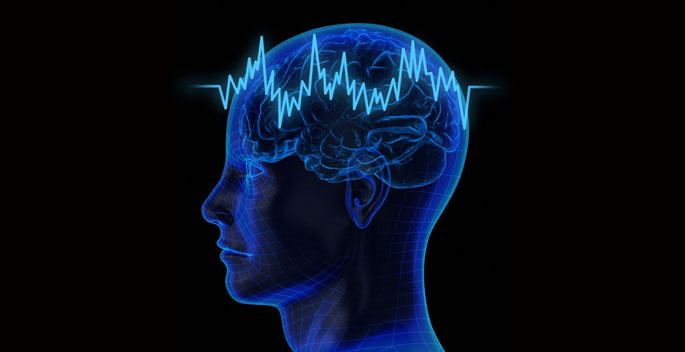Epilepsy
-

Quynh Anh Nguyen awarded prestigious Klingenstein Fellowship to study mechanisms of epilepsy
Quynh Anh Nguyen, assistant professor of pharmacology, is the first Vanderbilt faculty member to be awarded the highly competitive Klingenstein Fellowship in Neuroscience since 1985. Her research aims to unravel the mysteries of epilepsy by focusing on how specific cells in the brain contribute to or suppress the hyperexcitability in neural circuits that are thought to be involved in the disorder’s spontaneous seizures. Read MoreJul 10, 2025
-

Nguyen marries basic and translational approaches to ID new brain region responsible for epileptic seizures
Incoming assistant professor of pharmacology Quynh Anh Nguyen spearheaded research that points to a previously unidentified region of the hippocampus as responsible for epileptic seizures. The work could lead to new avenues of treatment to help epilepsy patients control their seizures. Read MoreApr 23, 2024
-

Study reveals a universal pattern of brain wave frequencies
Throughout the brain’s cortex, neurons are arranged in six distinctive layers, which can be readily seen with a microscope. André Bastos, assistant professor of psychology, is senior author on a study published in Nature Neuroscience detailing that these layers also show distinct patterns of electrical activity, which are consistent over many brain regions and across several animal species, including humans. Read MoreJan 18, 2024
-

New NIH grant funds novel brain network approach to improve epilepsy surgery
A multidisciplinary group of investigators from Vanderbilt University Medical Center, Vanderbilt University, and the University of Pennsylvania received a $3.2 million grant to develop novel brain network-based measures to guide surgical decisions and improve outcomes in the field of epilepsy surgery. Read MoreJan 18, 2024
-

New NIH grant funds novel brain network approach to improve epilepsy surgery
A multidisciplinary group of investigators from Vanderbilt University Medical Center, Vanderbilt University, and the University of Pennsylvania received a $3.2 million grant to develop novel brain network-based measures to guide surgical decisions and improve outcomes in the field of epilepsy surgery. Epilepsy is a debilitating neurological disorder where seizures are often resistant to medications, but... Read MoreJan 18, 2024
-

Nonprofits support quest to cure childhood epilepsy
Monica Joanna Elnekaveh was doing everything she could to learn what was causing her 18-month-old daughter’s developmental issues. Her relentless quest to find answers eventually led her to Vanderbilt investigative neurologist Jing-Qiong (Katty) Kang, MD, PhD. Read MoreNov 29, 2023
-

Sudden death from deep in the brain?
Vanderbilt neurologists found altered excitability in deep brain structures that they note may drive respiratory dysfunction and sudden death in a rare form of epilepsy. Read MoreAug 9, 2021
-

New $2 million NIH grant advances less invasive procedure for TLE
A Vanderbilt research team has received a $2 million National Institutes of Health grant to further develop a needle-size robotic surgery system with real-time MRI guidance for drug resistant temporal lobe epilepsy (TLE). Such a procedure has the potential to reduce or eliminate seizures using a minimally invasive approach over the current standard of care,... Read MoreFeb 16, 2021
-

Inflammation in genetic epilepsy
Brain inflammation links genetic and acquired epilepsy — providing new clues about epilepsy development and pointing to potential treatments. Read MoreJan 21, 2021
-

Single mutation causes seizure disorder
A single mutation in one gene can impair inhibitory signaling in the brain and cause multiple types of seizures and behavioral abnormalities. Read MoreJun 22, 2020
-

A new anti-seizure target?
Vanderbilt neurologists have identified a protein modification that could be targeted to reduce neuronal excitability in epilepsy. Read MoreDec 12, 2019
-

Blueprint for treating epilepsy
Structural details of a protein that is essential to normal brain function could improve treatments for epilepsy and other seizure disorders. Read MoreNov 14, 2019
-

Team discovers one more piece to the autism puzzle
Vanderbilt investigators have linked genetic mutations in a single receptor to epilepsy, autism and intellectual disability. Read MoreOct 3, 2019
-

Astrocytes and epilepsy
A protein with important functions in astrocytes — star-shaped brain support cells — may alter neuronal excitability and contribute to seizure activity, Vanderbilt researchers report. Read MoreSep 9, 2019
-

Research reveals underappreciated role of brainstem in epilepsy
New research from Vanderbilt suggests that repeated seizures reduce brainstem connectivity, a possible contributor to unexplained neurocognitive problems in epilepsy patients. Read MoreMay 31, 2018
-

Cannabis compound reduces seizures
Cannabidiol (CBD) oils reduced seizures in patients with difficult-to-treat epilepsy, Vanderbilt investigators have found. Read MoreFeb 26, 2018
-

Neurostimulation an option for some epilepsy patients
Patients with epilepsy who suffer seizures that can’t be effectively treated with medications or established surgical interventions could benefit from responsive neurostimulation, a relatively new treatment. Read MoreSep 28, 2017
-

Heat a trigger for seizures
Elevated body temperature alone can increase vulnerability to fever-induced seizures, even in the absence of infection or inflammation. Read MoreSep 6, 2017
-

Predicting brain surgery outcomes
Assessing brain functional and structural connectivity in patients with temporal lobe epilepsy may be a useful way to identify the best candidates for surgical treatment. Read MoreAug 18, 2017
-

New clues emerge in rare form of childhood epilepsy
Researchers at Vanderbilt University Medical Center (VUMC) are one step closer to understanding what causes early-onset epileptic encephalopathy, a rare form of childhood epilepsy that is difficult to treat and has poor developmental outcomes. Read MoreDec 15, 2016